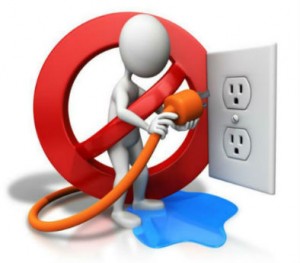
Most Dangerous Electrical Safety Hazards In Home
1.Defective or Torn Electric Wires
2.Appliance plugs on a single switch
3.Electrical appliances such as radios, hairdryers, shavers, portable lamps, or radiators used near showers, baths or swimming pools
4.Extension cords being used instead of permanent indoor/outdoor wiring
5.Wet floors are present where electricity is used
6.Electrical appliances that blow fuses, overheat, or spark heavily
7.Handling Electric Appliances with Wet Hands
8.Uncovered Electric Sockets around Toddlers and Babies
9.Working on Electric Equipment with the Power On
10.Pouring Water on an Electric Fire
How to turn off electrical hazards in your home ?
The best way to reduce the risk of death from electric shock at home is to have a safety switch, called a residual current device (RCD), fitted within your household fuse box. If there is faulty or wet wiring, or any electric current passing through a person, the safety switch will cut off the power within a fraction of a second. While the safety switch is not guaranteed to stop an electrical shock, it is guaranteed to make the injury much less serious.
1.Have a licensed electrician install a safety switch inside the house to replace your external fuse box.
2.Frayed, worn, or damaged cords and extension cords should not be repaired with tape—throw them out.
3.Always turn off the appliance before unplugging it.
4.When unplugging an appliance, make sure to hold the plug and not the cord.
5.Turn small appliances off when not in use.
6.Make sure outdoor appliances don’t come into contact with pools or puddles of water.
7.When using electricity in wet areas, always wear rubber sole shoes.
8.Never touch appliances or switches with wet hands.
9.Never fold or crumple an electric blanket.
10.Call a licensed electrician for any repairs needed to switches, power points, or light fittings.
11.Send faulty appliances to be repaired or throw them out. Don’t attempt to repair them yourself unless you are qualified.
12.Use plug-in covers to prevent children from poking objects into power points.
13.Make sure to unplug electrical appliances after using them.
14.Make sure to place electrical appliances where children are unable to reach them.






